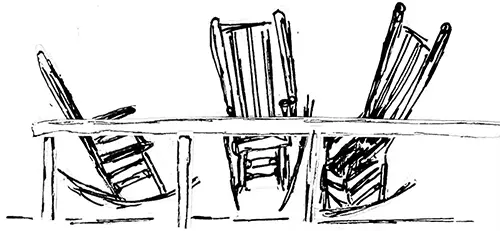Adam Smith is Assistant Professor of Political Philosophy at the University of Dubuque, in Dubuque, Iowa, where he also directs the Honors Program.
Adam Smith
Articles by Adam Smith
Against Bigness, Not Against Health Insurance
I believe in personal responsibility; insurance companies believe in impersonal responsibility.
What Plays in Peoria
You don’t have to be normal. You don’t have to be weird. You just have to be a person – which is a moral ideal, not a fact of nature…
Democracy Against Localism
That’s the great cultural task now: to relearn this old language, to keep it from dying out, to nurture it and refine and expand it, to develop new idioms and…
Waging Culture Wars Justly
To fight a culture war justly is to be confident that your arguments have a reasonable chance of success; but this means that to fight justly is not only about…
Localism without Nostalgia
Let’s have a localism without nostalgia, a practical but also a faithful localism. As localists let’s be committed to an accurate accounting of the checkered past that grounds our hope.
Seeking a President for the End of the World
For brokenists, the new regime is not just a matter of garden-variety regulatory capture, and “the rules” are just as often a symptom of the problem as a solution to…
Camping and Homemaking
You can’t actually get to utopia; it only seems like you can because it looms so large. I think it’s better to start wherever you are, and ask what it…
Liberalism, Postliberalism, and Localism: A Review of Justice By Means of Democracy
Allen notes that in ancient political thought, “the people” or demos referred not to the whole but to one part of the whole political community, namely the poor. The question…
Is Regime Change too Radical? Or too Conservative?
What is more radical, and more conservative, than to cast the ring into the fire? That would be a real “regime change,” would it not?
Observing Limits to Re-enchant a Mute World: A Review of The Uncontrollability of the World
Even Rosa the respectable sociologist entertains the possibility that if we relearned how to listen, the mountains might speak. Perhaps they too have their spirits, mute but waiting.
Localism as a Form of Government, or Localism as a Way of Life?
Consider that here at FPR we are at least as concerned with cultural issues as with political ones. If we are being honest, many of us are probably more concerned…
Après Nous, Le Déluge
What keeps me on one side rather than the other is my belief that if we had been living more fully in that real world, a lot of what we…
Putting Two Things Together: Reflections on Institution Building
I came away from Steubenville, as I came away later from Grove City, with the startling idea that things are possible. Small things; local things; putting two things together, not…
Where Is Our Freedom to Exercise Sympathy?
The same things that happened to the family farms, and to farmers like my father, are now happening to the colleges, and to faculty like me.
On the Front Porch with Ursula Le Guin
Those who do know her work might be a bit surprised if I suggest that Le Guin has a real porcher sensibility.
Clearing Ground
The romantic impulse toward wholeness, or the longing for when things were better—take a few bad turns in that mood, and you find yourself chanting hymns to blood-and-soil. People can…


